Good morningpublished at 08:58 GMT 23 January 2019
Welcome back to BBC Africa Live where we will bring you the latest news from around the continent.
Burundi says footage was filmed in West Africa
Kenya teacher killed 'over confiscated phone'
Thirty killed in month-long Sudan clashes
Plan to drop Afrikaans at SA university criticised
Mozambique orders arrest over $2bn fraud scandal
'President Bashir must leave' - opposition leader
Algeria journalist dies after self-immolation
Welcome back to BBC Africa Live where we will bring you the latest news from around the continent.
We'll be back on Wednesday
BBC Africa Live
Natasha Booty
That's all from BBC Africa Live for today. You can keep up-to-date with what's happening across the continent by listening to the Africa Today podcast or checking the BBC News website.
A reminder of Tuesday's wise words:
Quote MessageThe more feathers a chicken has, the bigger it looks."
A Zambian proverb sent by Mabor Dut in Cairo, Egypt.
Click here to send us your African proverbs.
We leave you with this picture of a couple on the beach in Pointe-Noire, taken by Congolese photographer Robert Nzaou:
Allow Instagram content?
This article contains content provided by Instagram. We ask for your permission before anything is loaded, as they may be using cookies and other technologies. You may want to read Meta’s Instagram cookie policy, external and privacy policy, external before accepting. To view this content choose ‘accept and continue’.
Naima Mohamud
BBC Africa
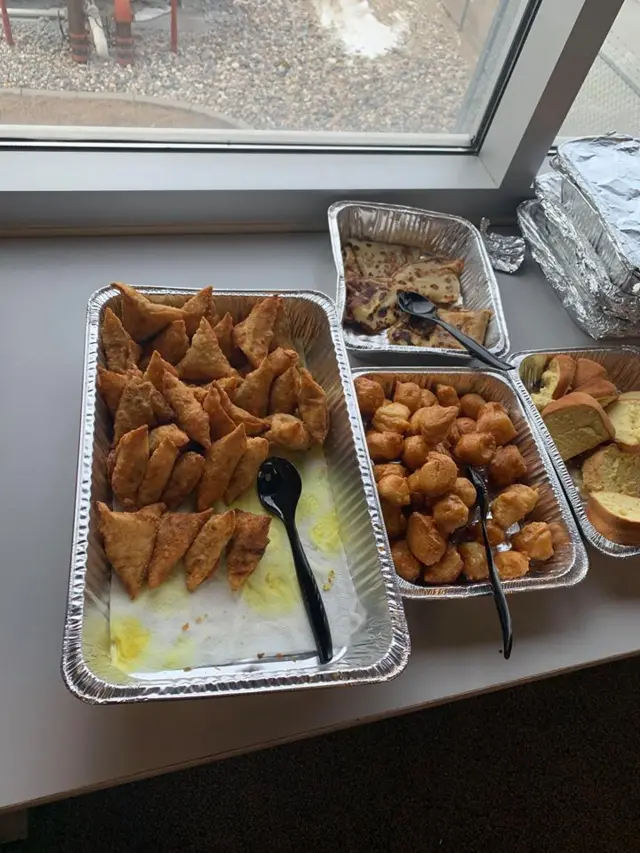 Image source, Abdiweli Sharif
Image source, Abdiweli SharifSome of the TSA agents had never seen a Somali samosa before
A group of Somali refugees living in Fargo, in the US state of North Dakota, prepared and delivered traditional Somali food to Transportation Security Administration (TSA) agents working without pay at the local airport last Friday.
Abdiweli Sharif, executive director of Somali Community Development in North Dakota, was one of the organisers. He told the BBC the reasons behind their act of kindness:
Quote MessageI arrived in the US 10 years ago at this very same airport, it was a cold February day but people were warm and welcoming. We are all people, we live in the same country."
The US government shutdown has left hundreds of thousands of public workers unpaid and government offices closed. The shutdown is in its 31st day.
Mr Sharif added:
Quote MessageWhen we saw that the US government isn't paying them, we decided to do something to show our appreciation so we prepared traditional Somali food for the agents."
Mr Sharif said the gesture was appreciated by the TSA agents:
Quote MessageWe took the food to the airport. They loved the food, some of the agents had never seen a sambusa [Somali version of samosa]. They also loved the traditional Somali tea - people still ask about the tea. It wasn't just food, we also took our culture and hearts to them."
Analysis
Fergal Keane
BBC Africa editor
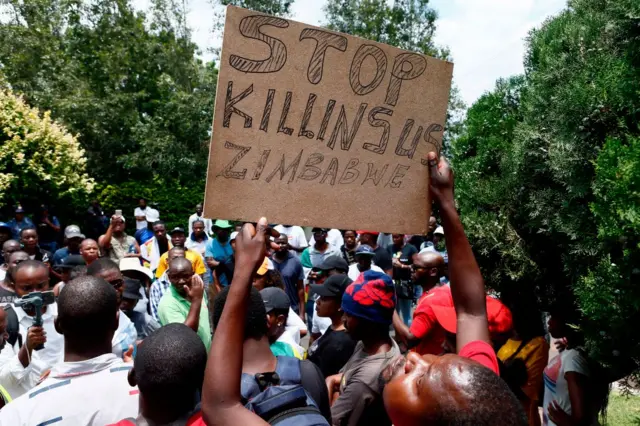 Image source, Getty Images
Image source, Getty ImagesZimbabwe represents an economy in freefall and one of the worst examples of political repression in contemporary Africa.
President Emmerson Mnangagwa looks as if his control of events is nominal at best, while his deputy – the former army chief Constantin Chiwenga – wields the real power.
He controls the army which brought Mr Mnangagwa to power after the overthrow of Robert Mugabe in November 2017.
The first post-Mugabe election last July was followed by violence – much of it inflicted by the army – and the realisation that a change of leaders didn't mean a change to the system of patronage, corruption and state violence which has been the hallmark of Zanu-PF for many years.
Mr Mnangagwa was steeped in the repression of the past but was said to be more pragmatic than General Chiwenga, understanding that if foreign investment was to be attracted after Mr Mugabe the thuggish and venal politics of old would need to be transformed.
The president has called for a national dialogue and spoken of heads rolling if members of the security forces were found to have abused their power. It will take concrete action to make Zimbabweans believe he is sincere.
The country is hostage to a ruling elite that is bitterly divided and struggling – to put it mildly – to persuade the international community that the country is – in Mr Mnangagwa’s phrase: "open for business".
 Ishaq Khalid
Ishaq Khalid
BBC Africa, Abuja
Nigeria's Chief Justice Walter Onnoghen has again failed to appear before judges at a tribunal in the capital, Abuja.
He is facing charges relating to failure to declare his assets before taking office in 2017.
This is the second time he has not shown up. He was, however, represented by his lawyers.
A group of peaceful demonstrators backing Justice Onnoghen, including lawyers and supporters of opposition political parties, were outside the court.
They believe the charges against the chief justice are politically motivated, and introduced as part of an effort to replace him ahead of next month's presidential elections.
As the head of the judiciary, the chief justice plays a vital role in settling election disputes.
The government wants him to step aside for the duration of the case, but his lawyers are challenging the tribunal's jurisdiction.
The case has been adjourned to Monday next week.
Killian Ngala Chimtom
BBC Africa, Yaoundé
China says it has written off almost $78m (£60m) from Cameroon’s debt as part of measures to ease economic hardship in the central African nation, but analysts say it is a play for greater access to resources.
The debt relief announcement was made on Friday shortly after a meeting between President Paul Biya and Yang Jiechi, a special representative of China's President Xi Jinping.
Cameroon’s total debt burden to China stands at almost $5.7bn (£4.4bn), according to figures from the Autonomous Sinking Fund, the public entity that manages Cameroon’s external debt.
The sum of $78m that has been wiped is money that should have been paid in 2018, but which Cameroon failed to pay.
Instead, the country’s president flew to China for the third Summit of the China-Africa Cooperation in September and pleaded with Chinese authorities to ease Cameroon’s debt burden.
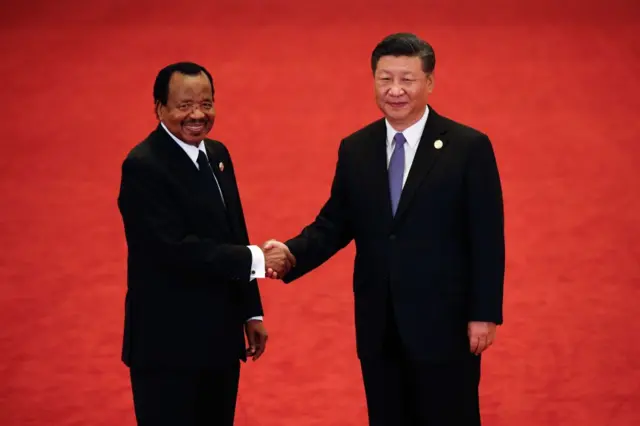 Image source, AFP
Image source, AFPCameroon is seen as a gateway into central Africa
Cameroonian economist Ariel Gnitedem says the amount cancelled looks paltry in comparison with the total debt, and says it could actually be for China's long-term benefit.
"China wants to control the sub-regional market and Cameroon is the gateway," he told the BBC.
"It is possible they also want a greater share in the enormous natural resources in Cameroon which are essential to feed its home industries."
Cameroon has been contracting loans from China to build dams, roads, hospitals and other infrastructure.
A violent security crackdown on protesters fed up of Zimbabwe's dire economy and cost of living has forced President Emmerson Mnangagwa to cut short a trip to Europe.
Demonstrations began after President Mnangagwa announced a steep increase in the fuel price earlier this month.
In the past week alone, some food prices have almost doubled and a bus ticket into the capital Harare is twice what it was:
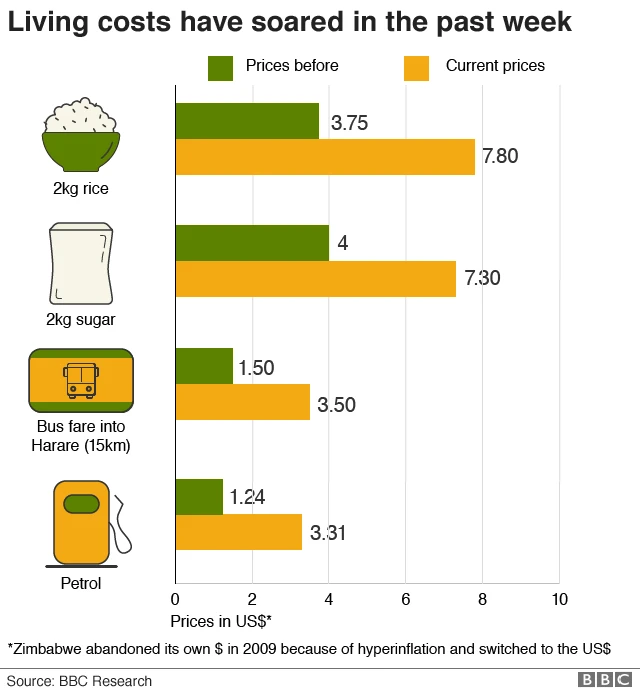 Image source, .
Image source, .Bond notes were introduced in 2016. They were brought in because of a shortage of US dollars and South African rand - the main currencies in daily use after rampant inflation killed off the old Zimbabwean dollar in 2009.
But inflation means that bond notes are losing their value - and many people prefer to US dollars or EcoCash, a mobile phone payment system.
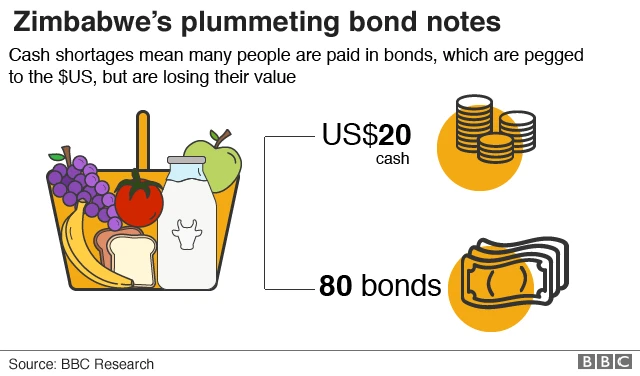 Image source, .
Image source, .Zawadi Mudibo
BBC Africa, Nairobi
The President of the Atheists Society in Kenya says he will sue his former employer the Central Bank of Kenya for wrongful dismissal after it fired him for posting political statements on Twitter.
Harrison Mumia says his account was hacked last year, but the bank insists that the tweets - criticising President Uhuru Kenyatta’s government and calling its supporters silly and blind - breached policy on political neutrality. Those tweets remain on his timeline.
Mr Mumia says his sacking last June from his job as the bank's communication officer amounts to a "witch-hunt". A workplace disciplinary committee at the time said it found no evidence his account was hacked.
He claims his dismissal was discriminatory because he is an atheist, and intends to move to court to seek damages of $327,000 (£252,600) from the bank.
The Central Bank has declined to comment on the matter.
Allow X content?
This article contains content provided by X. We ask for your permission before anything is loaded, as they may be using cookies and other technologies. You may want to read X’s cookie policy, external and privacy policy, external before accepting. To view this content choose ‘accept and continue’.
Bola Tinubu founded Nigeria's first free child helpline after being inspired by the British version.
The corporate lawyer established The Cece Yara Foundation in the country which aims to change attitudes to sexual abuse and encourage victims to come forward.
Ms Tinubu featured on the BBC 100 Women list in 2018. The list names 100 influential and inspirational women around the world every year and shares their stories.
Naima Mohamud
BBC Africa
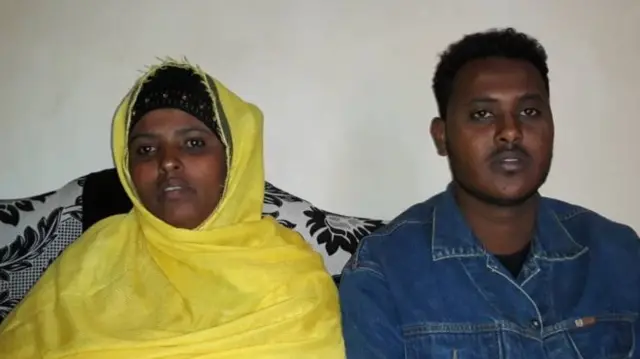
Ikran Abdullahi with her husband, Shamsu Diin, were married alongside 28 other couples
Somali couples who were married at a mass wedding last April in the city of Jigjiga, in Ethiopia's Somali region, say the authorities are now trying to evict them.
But the Somali regional government denies discriminating against the inter-caste couples, telling the BBC that whoever is trying to force them out is not acting on their behalf.
Hawa Abdulkadir, who moved to Jigjiga from Mustahil, a small village in eastern Ethiopia, said she had hoped that life in a mixed couple would be easier in the city away from their families:
Quote MessageI was very happy when I came to Jigjiga, I was one of the young people who were married in the mass wedding of the century. We received housing but now some people want to drive us out of our homes."
Somalia's caste system is complicated and makes inter-caste marriages difficult for people from lower castes. They often face estrangement and death threats.
Last year, a Somali man was burnt alive in Mogadishu after marrying a woman of a higher caste.
Shamsu Diin, who was also married in the mass wedding, told the BBC:
"I feel for the people who moved here from far away towns and villages."
The former regional administration hoped to curb discrimination based on caste by organising the mass wedding in April 2018. These couples - 29 in total - were given housing, but the jobs they were promised don't seem to have materialised.
The Somali regional president was forced out of office months later, and the new government has not upheld the commitments made to inter-caste couples by the previous administration.
 BBC World Service
BBC World Service
Police in Ghana say they're following numerous significant leads as they investigate the murder last week of a journalist who exposed widespread corruption in football.
In a statement, police said they had interviewed an MP, Kennedy Agyapong, and the former head of the Ghanaian Football Assocation, Kwesi Nyantakyi.
The killing of Ahmed Hussein-Suale by unidentified gunmen in a suburb of the capital, Accra, last Wednesday caused shock in Ghana.
He was part of an investigative team whose work last year prompted the dismissal or banning from football of dozens of referees and other officials.
BBC Africa Eye made a documentary about the scandal last year after gaining access to the investigation led by journalist Anas Aremeyaw Anas, who runs Tiger Eye.
Ahmed Hussein-Suale investigated corruption in Ghanaian football
Vauldi Carelse
BBC Africa, South Africa
When South African jazz musician Musa Manzini was diagnosed with a benign brain tumour, the surgeons decided there was only one way to perform the removal operation - while he was awake.
A very uncommon practice in South Africa, the surgeons woke him from the anaesthetic after drilling a hole in his head and asked him to play guitar while they operated.
Although they removed 90% of the tumour, they cannot be certain it won't come back.
Manzini just hopes to continue to make music, with the surgeons even promising to buy his next album:
Being awake during brain surgery: 'You are hovering in between worlds'
Analysis
 Pumza Fihlani
Pumza Fihlani
BBC News, Johannesburg
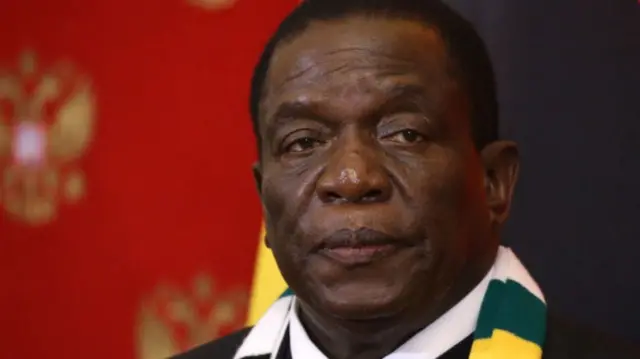 Image source, Gallo Images
Image source, Gallo ImagesProtests in Zimbabwe have forced President Mnangagwa to skip the global economic summit in Switzerland
"Brotherly" South Africa seems to be coming to Zimbabwe’s rescue.
It isn't in form of the $1.2bn (£930m) loan the country had asked, but rather by using its international reputation to plead Zimbabwe's case.
Speaking on the side-lines of the World Economic Forum (WEF), South Africa's President Cyril Ramaphosa called for an end to economic sanctions against Zimbabwe.
Zimbabwe's President Emmerson Mnangagwa is a no-show at Davos this year, with little choice but to cut short his foreign travels and deal with the humiliation of anti-government protests at home.
South Africa is home to the largest population of Zimbabweans outside that country, so instability there has an impact here - not least of which economically.
President Ramaphosa seems determined to help find a solution, saying the crisis was a challenge not just for Zimbabwe but the whole continent.
In the streets of Zimbabwe a degree of normalcy has returned, businesses are open, people are walking the streets but the army is still on patrol.
So what happens now?
Many will be watching President Mnangagwa's words and actions over the next few days. He has a tough job ahead.
He needs to rein in his security forces from clamping down on dissent in the brutal way they did during the rule of Robert Mugabe, who was ousted as president last year in a military takeover.
He must also restore Zimbabwe’s now tarnished reputation after last week’s deadly protests.
The dream of his new Zimbabwe is far from being realised.
 Catherine Byaruhanga
Catherine Byaruhanga
BBC Africa, Kampala
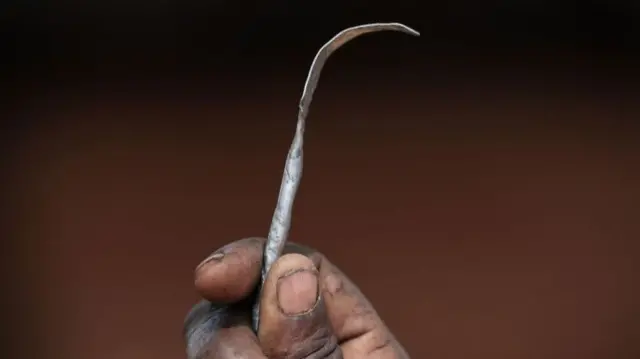 Image source, AFP
Image source, AFPFemale genital mutilation is illegal in Uganda
Ugandan police say 19 people, mostly men, have been arrested in an overnight raid for performing female genital mutilation (FGM), which is illegal in the country.
According to the activists who reported the case to the authorities, at least 10 women were about to undergo FGM at the ceremony in Kween district in eastern Uganda. Police are trying to find the women.
There are concerns that the number of women being circumcised in the Sebei region in the east of the country is on the rise.
Many are believed to be married women who feel pressure from society to be cut. Some feel they face social isolation and are excluded from some cultural activities.
Authorities had been accused of turning a blind eye to recent customary FGM ceremonies, some of which have been taking place in the open.
If found guilty, the suspects face up to 10 years in prison. Police say prosecutions are not common because most FGM is done in secret and it is hard to find evidence.
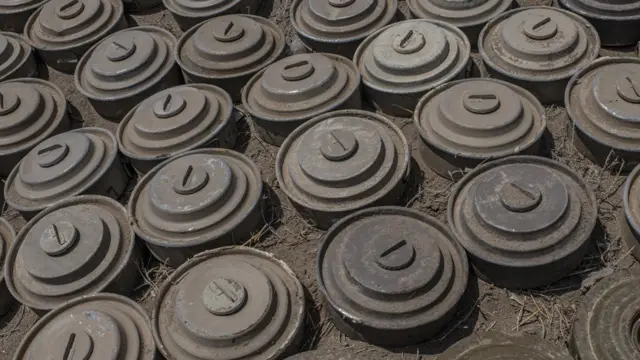 Image source, Getty Images
Image source, Getty ImagesThey were trying to remove and destroy landmines
Two South African mine-clearing experts have been killed in an accidental explosion in Yemen, a Saudi-funded charity has said.
They were travelling in a vehicle that blew up in the city of Marib on Sunday while carrying mines to be destroyed. Three other de-mining experts travelling with them - one Croatian, one Bosnian and one Kosovan - also died in the blast.
A Briton was also hurt, according to the King Salman Humanitarian Aid and Relief Centre.
The mines had allegedly been planted by the rebel Houthi movement, which has been battling the Saudi-backed government since 2015.
Since then, at least 6,800 civilians have been killed and 10,700 injured in the fighting, according to the UN. Thousands more civilians have died from preventable causes, including malnutrition, disease and poor health.
Zimbabwe's opposition leader has rejected the president's call for "national dialogue" after days of protests and a violent security crackdown, instead demanding an end to "terror" and the release of prisoners before any such talks.
"In order to dialogue, one’s tongue must be free to talk. The tongues of the nations are tied in jails and many others by fear. This must end," Nelson Chamisa, leader of the Movement for Democratic Change (MDC), said in a series of tweets.
Allow X content?
This article contains content provided by X. We ask for your permission before anything is loaded, as they may be using cookies and other technologies. You may want to read X’s cookie policy, external and privacy policy, external before accepting. To view this content choose ‘accept and continue’.
The MDC accuses the authorities of a brutal crackdown against demonstrators fed up with high fuel prices and a failing economy.
But ministers say the MDC is using people's discontent as a pretext for violence.
President Emmerson Mnagagwa said earlier on Tuesday that a dialogue was necessary to "put the people first".
Allow X content?
This article contains content provided by X. We ask for your permission before anything is loaded, as they may be using cookies and other technologies. You may want to read X’s cookie policy, external and privacy policy, external before accepting. To view this content choose ‘accept and continue’.
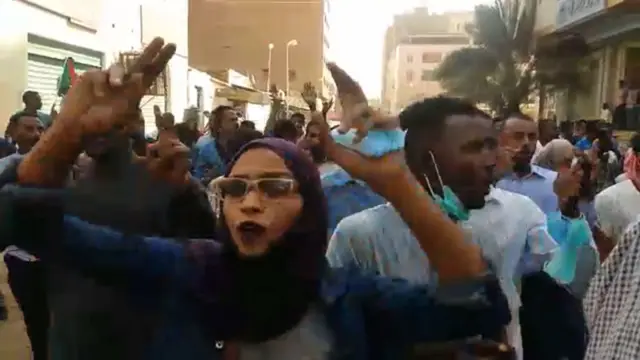 Image source, AFP
Image source, AFPProtests in the capital city of Khartoum have entered their sixth week
The authorities in protest-hit Sudan have refused to renew the accreditation from three journalists working for Al Jazeera, a journalist has confirmed to the BBC.
It means they will not be allowed to report on events in the country where anti-government demonstrations have entered their sixth week.
A reporter for Turkey's Anadolu news agency has also been blocked from reporting, as has a correspondent for Saudi-based Al Arabiya.
On Monday, the Sudanese authorities said they wanted to review the Anadolu and Al Arabiya journalists' status, but gave no further explanation.
Protests began in Sudan last month over the economic situation in the country but are now focused on removing long-time President Omar al-Bashir from office.
Officials say 26 people have died in the protests, but rights groups say more than 40 have been killed.
More on Sudan:
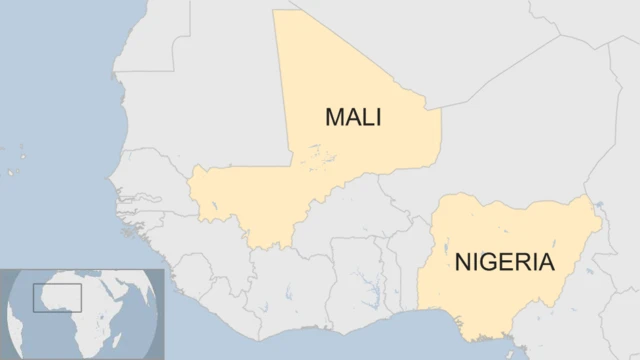
They were found in "slave-like" conditions in Mali
A Nigerian agency fighting against people trafficking says its fact-finding team has found at least 20,000 girls stranded in Mali.
"We received reports concerning the stranded girls and sent a team to find out", Julie Okah-Donli, the Director General of The National Agency for the Prohibition of Trafficking in Persons (Naptip), told the BBC Newsday programme.
Ms Okah-Donli said that some of the girls had been tricked into going by traffickers who told them they were being taken to Malaysia for work. Other girls had been kidnapped on their way to or from school.
She said that the agency was working with the Nigerian authorities, Mali's government, and the International Organisation for Migration (IOM) to repatriate the girls.
She described the girls' living conditions as "slave-like", adding that the agency does not have a definite number of other girls who may also have been trafficked to neighbouring countries.
"We are thinking of going to Ghana and Senegal," Ms Okah-Donli said about where the agency would next send a team.
A public memorial service is under way in Kenya's capital, Nairobi, honouring six of the people killed in last week's terror attack on the Dusit complex.
Jeremiah Mbaria, Kelvin Gitonga, Ashford Kuria, Wilfred Kareithi, John Ndiritu and Denis Mwaniki all worked for Cellulant, a financial technology firm described as one of Africa's most innovative start-ups, external in that sector.
Allow X content?
This article contains content provided by X. We ask for your permission before anything is loaded, as they may be using cookies and other technologies. You may want to read X’s cookie policy, external and privacy policy, external before accepting. To view this content choose ‘accept and continue’.
Cellulant says the six men performed "selfless acts of leadership and bravery to save the lives of their colleagues".
The company have asked the congregation not to take photos or videos but is live-streaming the service via Facebook.
CEO Ken Njeroge has called it a "painful" time.
Tuesday's African proverb:
Quote MessageThe more feathers a chicken has, the bigger it looks."
A Zambian proverb sent by Mabor Dut in Cairo, Egypt.
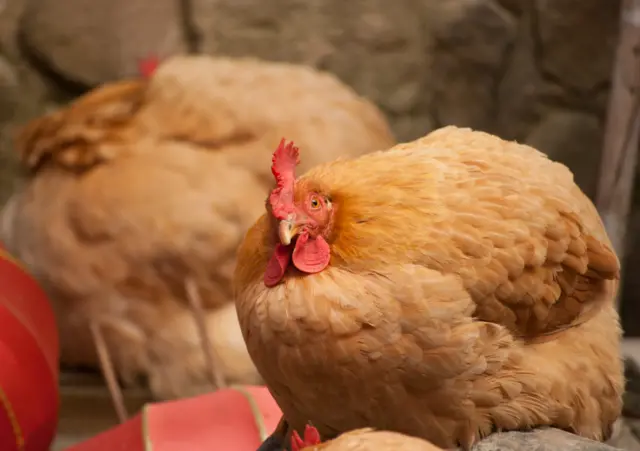 Image source, Getty
Image source, Getty